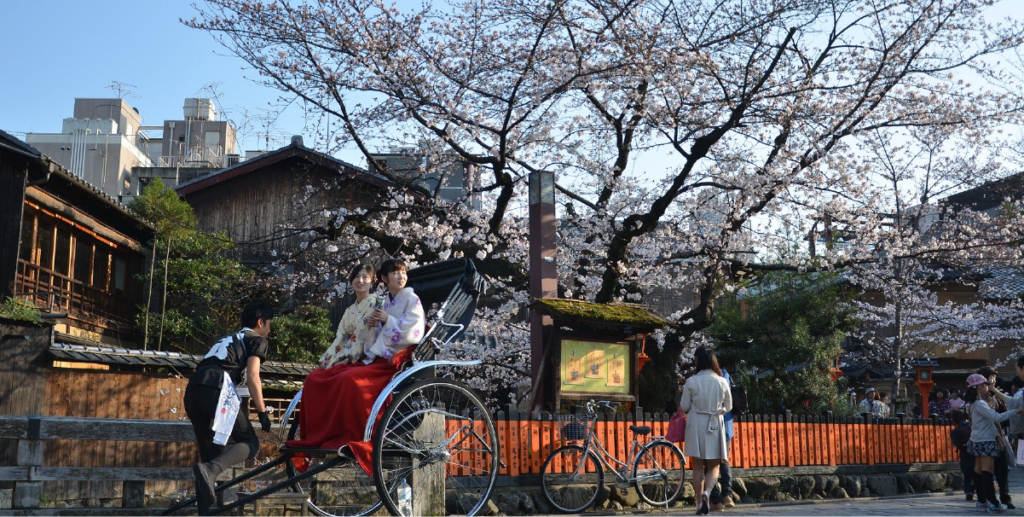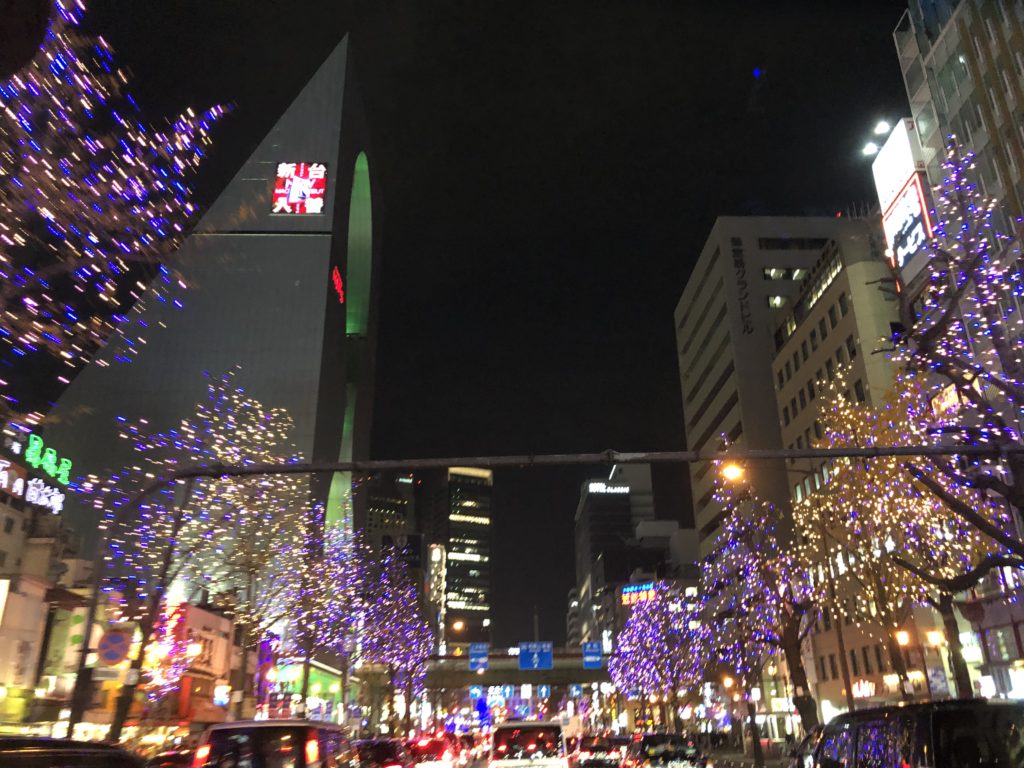Experience
Start a dialogue with people living in Japan ...
Won-san: “I’m so happy! Almost too happy—it’s the best!”

Won-san: “I’m so happy! Almost too happy—it’s the best!”
−My future plans are sorted. It’s perfect.
After graduating senior high school in South Korea, Won-san entered straight into a Japanese university.
−In the future, I want to go to graduate school, then look for a job in Japan. But of course, I want to enter a really good business, so I’ll have to compete with Japanese people. In that case, I don’t really have confidence that I’ll be able to beat them at Japanese, no matter what I do. So, I’ll focus on getting good at the things Japanese can’t do, like Korean and English, then look for a job in which I can put those points to good use—that’s what I’m thinking. I’ll do a working holiday, study a bit for about a year, then, once I graduate from university, if I can, I want to enter something like a trading company, where there’s lots of different divisions, right? Then, I want to enter something like the international division, and get posted abroad. I’ll find a Japanese wife, and have kids, and I’ll earn enough money to pay the tuition fees for when they go to university. Then, I save and when I’m around 50, I plan to quit my job because I don’t want to get crushed by my job while under stress. Finally, I plan to open a guest house.

I first became interested in Japanese on a family vacation.
−I first developed an interest [in Japanese] on a family vacation during my elementary school days. I’ve been into it since then. From junior high school, I started reading shōnen manga series like Bleach and One Piece. It’s pretty standard, right? I think most people who study Japanese first got into it through manga and anime. I was just the same, really into One Piece and stuff like that.
I thought I might be able to give it a try in Japanese.
−I read Bleach and One Piece in Korean. And I watch the anime versions, too. Watching that, you hear a little Japanese and start to develop an ear for it. Almost unconsciously. You develop an understanding through listening in Japanese while reading the Korean subtitles, and gradually you become able to understand even without the subtitles. Even though you haven’t really “studied” anything. Of course, it’s not perfect. You just get the rough meaning. Then, when I went to the cram school and heard Japanese, I could get quite a lot of what was being said. That’s when I realized I have a knack for foreign languages (laughs).
After I decided to study Japanese, I talked it through with my parents.
−I really developed my interest [in Japanese] after entering senior high school, buying books myself. I just learned hiragana and katakana at first. After that, I talked things through with my parents. I wasn’t likely to get into a good university in Korea, and they suggested that, if I wanted to study Japanese, the best place for me to do that would be in Japan, rather than some Japanese Studies department or university of foreign languages. That was really when everything kicked off, my love for Japanese.
Studying at school wasn’t really working for me, but I enjoyed learning at a Japanese cram school.
−For our second foreign language at school, we had to choose between Chinese and Japanese, and there were tests, so I choose Japanese because I was already pretty good at it. But the stuff we studied at school was very basic, starting from hiragana and katakana, so it wasn’t useful at all for me. However, from September of that first year until the third year of senior high school, I went to a Japanese cram school. Three times a week, four hours each time. For two hours, we’d have a Korean teacher who taught us the grammar, then for two hours, we’d have a Japanese teacher come in and focus on conversation. That was how we spent the four hours. Studying Japanese didn’t really feel like “studying”. It was something I liked, so I almost forgot myself, just totally absorbed in it, having fun.
I was a pretty outstanding student.
−It’s strange to say it myself, but while I was at the cram school, from the first to the second year of high school, I was known as the star pupil! I was the light of that cram school. “That guy could get into Waseda!” That kind of thing.
I experienced a slump in my third year of high school.
−In the third year of high school, I kind of lost my passion for Japanese. I didn’t study. Not seriously. I experienced a kind of slump in my Japanese. I was at quite a high level, studying so hard for months but it wasn’t paying off. I couldn’t see my progress. And I was pretty full of myself, and I had an argument with my teacher. I think that teacher wanted to knock me down a peg or two, and this just kept going on until I lost my motivation. Shortly after that, I started hanging out with my less studious friends. At the same time, in the third year, people who hadn’t been as good as me started to catch up, or at least that’s how it appeared to me, and I really lost my motivation (laughs).
But I wasn’t worried at all.
−“Oh!” I thought, but at the same time I didn’t really care. I don’t like competing with others, so I wasn’t particularly bothered. Our lives are separate.
I’m driven to learn by …
−I’m interested in people from other cultures. When I came to Japan, I really wanted to meet a Japanese girl. Meeting girls is my driving force. It’s always been a pretty big motivator for me (laughs), right from the beginning.
But honestly, I don’t want to worry my parents.
−At that time, I wasn’t invested in my school studies at all, but the cram school was quite expensive and my parents were paying for everything. It would have been pretty hurtful to them if I didn’t do my best, having always looked after me. I had the things I liked, and I didn’t give up on those, I think. Generally, I’m weak-willed. I’m very quick to give up on things. So my parents were pretty surprised.
Nevertheless, I didn’t come to Japan without a plan.
−Before I came to Japan, when I was in Korea studying Japanese, I had three goals. The first was to enter university and join a club. The second one was to become besties with a Japanese person. The third one was to find a Japanese girlfriend. Basically, I just wanted to construct a place where I could feel completely comfortable.

I achieved all of my goals.。
−I made friends in the light music club. I didn’t really want to make loads of new friends, but more find at least one friend whom I could share my true thoughts with. I have around five friends like that now. I don’t think I need any more than that. I joined the club because I wanted to make that place where I could feel comfortable.
My life in Japan is just how I imagined it.
−It’s pretty much the same as what I thought it would be. I was fairly realistic about it. I didn’t come here with unrealistic hopes and dreams. I just thought it would definitely be a blast.
I don’t really have any problems living in Japan, but I’ve had some trouble with interpersonal relationships.
−There’s a tutor who tried to introduce me to a sketchy religious group. I had to block them because they kept sending me messages on LINE. All you can do is avoid that kind of person. Now my tutor is one of my seniors from the light music club. I can really trust them. The university paired us up. That senior is well-regarded in the school. And we’re in the same club, so I guess the school thought I could rely on them. I stopped with the previous one after a year. To tell the truth, I thought I didn’t need that kind of person. They were such a pain. But it was a good experience. From that, recently I learned to be a little skeptical about what people tell me. I’m a little more wary when I first meet someone. Before, I think I was a little naïve, just believing every Japanese person. Now I’m more doubtful (laughs).
Since coming to Japan, my personality has changed, but my Japanese hasn’t.
−My Japanese is about the same as when I was a freshman. But I used to avoid things that were hard, and since coming to Japan, I think I’ve gradually gotten better at that. And living on my own, of course I really can’t escape from the things I have to do, so I’ve become a lot stronger.
Also, recently my appearance has improved.
−I feel like day after day, night after night, my appearance is getting better. I can see my appearance improving. My face. In freshman year, I was still a little chubby, but I look better now. My hair is straight, as always, to cover my big forehead. I don’t join in with events like Futsal, because my forehead would be plain to see.
I’m blessed by the people around me—it’s the best!
−I’m so happy! Almost too happy—it’s the best! I often think to myself about how blessed I am by the people around me. They’re all great people, so it’s thanks to them rather than me. And I like Japan. I can sincerely say that now. As the person I truly am at heart. For me, I’ve been charmed by Japan’s spirit of harmony. Everyone’s very polite, they try not to trouble others, that kind of thing. You can really feel it just walking around. I’m working hard to become that kind of person myself.
日本で人と出会うことが日本語の勉強です。
−I don’t think I’m learning Japanese only in my classes. Just being here itself is a form of study. Going to different places, connecting with different people—that’s the real way to study Japanese. And the classes are good, too. Meeting people as nice as my teachers. You can study, but meeting nice people? That can’t be forced.

In Japan, you really need to have confidence.
−Right now, I’m a bit worried about my studies, about whether I’ll be able to graduate. But not that worried, because I have self-confidence. That comes from my face, because I’m good looking (laughs). Also, as an international student, if you don’t believe in yourself, you’ll definitely be looked down upon. You know, if you don’t feel confident, others will tend to ignore you, right? Humans get weaker around stronger people, and we get stronger around weaker people. Even if I’m looked down upon, or if I can’t speak Japanese, I’ve never been ignored, not even once. When it comes to studying, I know I can do it if I try. I just don’t do it. I have a lot of potential. I’ve never really been discriminated against either. But actually, my Japanese is pretty good, so I guess it’s a weapon. But 99.99% of my confidence is thanks to my face. But there’s still quite a lot of kanji and stuff that I don’t know, so, how can I say it? Unlike my face, I can’t boast about anything connected with studying, I can’t claim that.
My goal is to master Japanese.
−I’m not at the level I want yet. If I can get to the point where I can read most of the kanji, write what I need to, just a little grammar, that kind of stuff… Mastering Japanese is my goal.
Right now, my big obstacle is my military service.
−Yeah, military service is a real pain. I won’t be able to get a girlfriend. I won’t be able to play around. I’m happy to play around, but my heart’s not in it. But I feel like this lifestyle I’ve taken for granted can’t go on forever. My military service is less than two months away, so it’s started to feel very real. Anyway, I’m doing my military service soon, so for now I’m just going with the flow, taking it easy, right? When I come back, I feel like I’d like to start a second chapter in my life. Then I’ll have a part time job while studying little by little. A student’s job is to study, not work part-time, I think.
I want to live in Japan for the rest of my life.
−I won’t go back [to Korea]. I would definitely hate it. I’ll get a job here and this is where I’ll be buried. There’s no rhyme or reason to it. The most important thing is to follow my heart. す。
(END)
